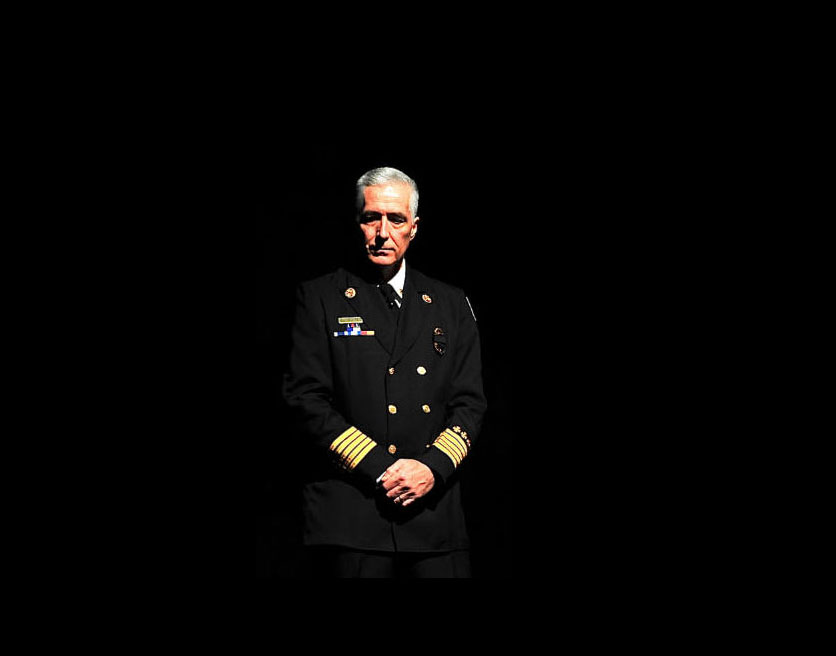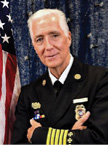
Editor’s Opinion ❘ By BOBBY HALTON

The role of a firefighter is to protect humanity and property, serve our neighbors, and look out for one another. The ways we accomplish these lofty goals, the methods we employ, are as varied as one can imagine. Now, this makes some people crazy who believe that our methodologies should be monolithic, standardized, and highly regulated. They are convinced they know better than the “firefighter in the arena” how to assess and manage risk. Those of us who must do the work, or have done the work, know better. But assessing risk and risk tolerance—that’s a local issue, a very local issue.
The literary folks gave us this title “The Bravest.” The legend goes that this moniker was inspired by this quote: “The bravest are those who have vision of what is before them, glory and danger alike, and yet notwithstanding, go out to meet it.” Those words were spoken by the Greek general Pericles and written by the Greek historian Thucydides.
Glory and danger are not casually chosen words. Glory is a beautiful word; it is not restricted to praise and acclamation—they represent the least important aspects of glory. When a firefighter saves someone, a human life, that is glorious. That glory is the joy of their families, their friends, and the future they can continue to participate in. Danger is another deeply nuanced word. Experienced firefighters understand the rewards and the risks equally and, nonetheless, go forward; this is not a trivial thing.
How we manage risk on the fireground, safety, continues to evolve. We understand more about our work with every passing day. Our tactics evolve constantly as a result. What has not changed, what will never change, is our willingness to accept incredible risks, danger, to rescue those in danger. What will never change is our willingness to place ourselves in that danger in the hopes of getting someone out alive.
Much of that was captured in the old saying, “Risk a lot to save a lot, risk a little to save little, and risk nothing to save that which is already lost.” The first “a lot” was meant to be a human life, the second “a lot” was property, and the third part referred to a fire or an event that had already exceeded our ability to affect the outcome.
Doing acts or agreeing to do acts, as Chief Eward F. Croker, FDNY, pointed out, that place you in danger is heroic. Heroism is challenging a threat or taking on a challenge that is so immense and daunting that most would rather not try. In doing so, we often go outside what some consider reasonable. Most veteran firefighters have been on the receiving end of this old line from the chief after a sporty rescue: “I don’t know if I should send you to Disneyland, give you a medal, or fire you.”
Many people in our communities want every risk in life to be zero. They are convinced that nothing bad, dangerous, or terrible should ever happen to anyone. This is not because they are stupid or foolish; it is inextinguishable optimism, a classic American characteristic. But we can’t hold these same feelings: Bad things happen, things go wrong, and unexpected things happen constantly. Heroic firefighters respond when they do.
I wish I could remember exactly who said it, but it was an engineer following one of the shuttle disasters who wrote in a memo: How would NASA explain this to a public who expects every risk in life to be mitigated to zero? How would they explain how these brave men and women died? He went on to explain how folks who become astronauts are brilliant, talented, and extremely educated. They understand the risks and rewards and, nonetheless, they compete for the opportunity to risk their lives because the rewards of space exploration and experimentation are so great.
He went on to say that doing brave and heroic things involves risks, and if we’re not going to do anything that is risky, then we are not going to do anything brave or heroic. It’s particularly interesting because after Sharon Christa McAuliffe, a schoolteacher and one of the seven crew members killed in the Space Shuttle Challenger disaster, many astronauts opined that they thought it was wrong that civilians such as McAuliffe were allowed to participate. They felt that the risk of space travel should be exclusive to astronauts or those committed specifically to working in space.
The wickedly complex issue for firefighters is trying to explain why we do what we do to the general public, the civilian women and men we report to, and those persons who would desire to join our ranks. It becomes extremely difficult to convey to others why firefighters made the ultimate sacrifice, why understanding the glory and danger alike, we went out and met it.
I think one of the best explanations came from Mike Rowe in his short video “Safety Third.” He described being on a fishing boat and looking for safety warning signs. After confronting the captain about the lack of safety messaging, the captain explained to him, “I’m the captain of a crab boat. My job is to get you home rich. If you want to get home alive, that’s on you.” Rowe then explained that he got it; he understood then that safety, survival, is a personal responsibility, not necessarily a collective one. A naval officer once told me, “Self-preservation is its own reward.” He got it.
As for us, we work on crews. Generally speaking, the risks that we assume we assume together. Every crew has a boss, and every fire boss knows it’s the mission, then the crew, then themselves. We thank Pericles for the title “The Bravest.”

MORE BOBBY HALTON

